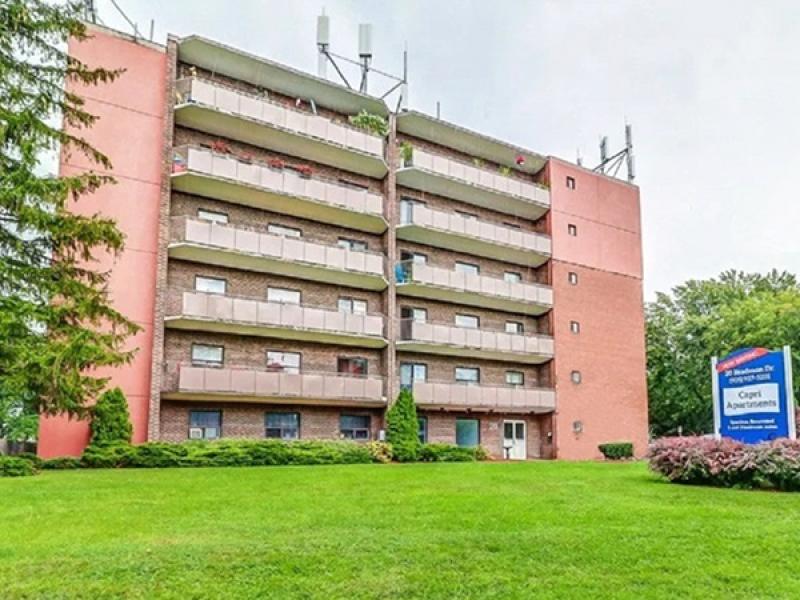Canada is on sale.
 How could it not be, given the slump in the value of the loonie?
How could it not be, given the slump in the value of the loonie?
Hooray, you say. A little foreign direct investment might give our sluggish economy a much-needed shot in the arm as we stubbornly cling to our resource-based economy and hold out for a rebound in global oil prices.
But what happens if the buyers lining up at the door want to clean out the store, then buy it, too?
Take the “Garden of the Gulf,” Prince Edward Island. No one from outside the province, even if they’re Canadian, is allowed to purchase more than five acres or 165 feet of shoreline. If they want to, they must apply to P.E.I.’s Island Regulator and Appeals Commission. This commission will then make a recommendation to the provincial cabinet, which ultimately rules on the application.
In 2009, American Melvin Griffin was fined $29,000 for violating P.E.I.’s Land Protection Act, after he went ahead and purchased a 76-hectare stretch through an intermediary after his application was shot down by provincial cabinet.
Why is P.E.I. so hard-nosed about this?
The need for checks and balances
It’s beautiful shoreline and farmland that’s always attracted interest. It’s also a small island. If there weren’t any safeguards in place, the entire island would be bought up.
In fact, P.E.I.’s issue with foreign buyers, and absentee landlords, began way back in the 1700s, when these properties were allocated to supporters of King George III by means of a lottery. Ownership of the land remained with landlords in England. Island settlers couldn’t gain title to land on which they worked and lived.
Canada is a big place, at least in terms of square mileage, but it’s more like P.E.I.’ than not compared to countries like China in terms of population and economic output.
Remember when I said Canada is on sale?
Last week came word Chinese investors had won “one of the most important real estate auctions in Vancouver history.”
Those deep foreign pockets
The Financial Post reported Anbang Insurance Group Co. Ltd., a Beijing-based company with a reported US$114 billion in assets, is buying a 66 per cent stake in Bentall I, II, III and IV. This is a 1.5-million-square-foot commercial office and retail complex that’s being valued at about $1 billion by Anbang, according to sources quoted by the Post.
The seller is Ivanhoe Cambridge Inc., a subsidiary of Caisse de dépôt et placement du Québec.
If this sale goes through, it won’t be Anbang’s first big deal in a prime Canadian real estate market, and it likely won’t be the last. Ross Moore, an independent real estate consultant, told the Post Chinese investor interest is at an all-time high, on both the residential and commercial side.
European investors are lining up, too. That 13-year low in the value of the loonie is just too hard to resist. And despite our oil patch woes, Canada is still seen as a safe haven to park some cash with a nice, stable financial system.
What does this mean for our largest cities?
But Asian and other investors have been making opportune purchases in the Canadian market for years before the current economic situation. A growing trend is primed to explode thanks to that weak loonie.
Like those Islanders of a previous century, are we at risk of becoming tenants in our own country?
And how are smaller investors going to compete with the purchasing power of deep-pocketed international buyers? Along with REITs and other large institutional investors, these buyers can purchase at cap rates too low for smaller investors to bear.
What impact will this have on commercial and residential tenants in Canada’s VECTOM cities where the ownership is increasingly concentrated and foreign-based? One impact from foreign buyers will be increased property values, increased assessments and higher property taxes.
Where’s our domestic investors?
A domestic landlord is at least more accountable and more likely to have a vested interest in the welfare of tenants and the health of the local economy. But the majority of foreign investors have only one concern – money.
We’ve already seen that interest at play in markets like Vancouver, with the growing prevalence of so-called “zombie” buildings – properties bought to park cash that sit empty because the foreign owners have no interest in actually generating revenue from them.
Which begs the question – if Canada is such an attractive market for foreign real estate investors, why wouldn’t it be for domestic ones? If Canadians with deep pockets aren’t willing to step up and start buying their own country, we risk becoming tenants in our own home.
To discuss this or any other valuation topic in the context of your property, please contact me at jclark@regionalgroup.com. I am also interested in your feedback and suggestions for future articles.







